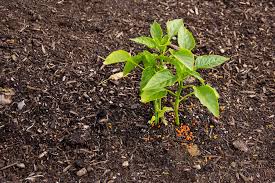
Oct . 15, 2024 07:27 Back to list
Understanding the Role of Potash in Enhancing Vegetable Garden Productivity and Health
The Importance of Potash in Vegetable Gardening
When it comes to growing a thriving vegetable garden, the quality of the soil plays a pivotal role in the success of the plants. Among the various nutrients essential for plant growth, potash, or potassium, stands out as a crucial component that can significantly enhance the health and productivity of your vegetable garden. Understanding the importance of potash can help gardeners make informed decisions about soil management and fertilization techniques.
What is Potash?
Potash refers to potassium-rich salts that are often used in fertilizers to supply plants with this vital nutrient. The term potash commonly describes potassium oxide (K2O), which is how potassium is measured in fertilizers. Potassium is one of the three primary macronutrients plants need—along with nitrogen and phosphorous—to thrive. It plays numerous roles in plant development, from regulating water usage to promoting root and fruit development.
Benefits of Potash in Vegetable Gardening
1. Improved Plant Health Potash helps strengthen the overall health of plants, making them more resilient to diseases and pests. It enhances the plant's immune system, allowing it to combat various environmental stresses better.
2. Enhanced Yield Vegetables such as tomatoes, peppers, and potatoes benefit significantly from adequate potash levels. The nutrient aids in the development of fruits and roots, leading to improved yield and size. A well-fed plant produces more substantial, tastier vegetables, encouraging higher returns for gardeners.
3. Water Regulation Potassium is crucial in regulating water uptake and retention in plants. It helps control the opening and closing of stomata, thus facilitating the process of transpiration and ensuring optimal moisture levels within the plant. This is particularly important during periods of drought or high temperatures.
4. Balancing Nutrient Levels Potash helps to balance the effects of other nutrients in the soil. For example, potassium can improve the uptake of nitrogen by plants, ensuring that they have a well-rounded nutrient profile. It's essential to remember that an imbalance of nutrients can hinder plant growth, so maintaining the right levels of potash is important.
potash in vegetable garden

5. Improved Flavor and Quality Proper potassium levels contribute to the flavor profile of vegetables. Crops such as cucumbers, carrots, and sweet peppers exhibit enhanced sweetness and taste when potassium levels are optimized. This is a significant advantage for home gardeners who take pride in producing high-quality, flavorful vegetables.
How to Ensure Adequate Potash in Your Garden
1. Soil Testing Before applying any fertilizers, conduct a soil test to determine the existing nutrient levels. This will help you understand how much potash, if any, you need to add to your soil.
2. Use of Fertilizers Choose fertilizers that contain potassium, such as potash fertilizers, kelp meal, or wood ash. These organic sources can enrich the soil with potassium without the risk of chemical buildup.
3. Crop Rotation Implementing crop rotation can help maintain healthy nutrient levels in your garden over time. Certain crops exude higher potassium requirements and, when alternated strategically, can help replenish soil nutrients.
4. Composting Regularly adding compost to your garden can gradually enhance potassium levels. Organic compost not only provides a well-rounded nutrient profile but also improves soil structure and moisture retention.
5. Mulching Apply mulch around your vegetable plants to retain soil moisture and suppress weeds. As the mulch breaks down, it also releases nutrients, including potash, back into the soil.
Conclusion
In conclusion, potash plays a vital role in the growth and productivity of vegetable gardens. By understanding its importance and ensuring adequate levels through proper soil management techniques, gardeners can cultivate healthier plants and achieve bountiful harvests. Remember that the key to successful vegetable gardening is striking the right balance of nutrients, and potash is undoubtedly a cornerstone of that balance. With attention and care, your vegetable garden can flourish, yielding not only plentiful produce but also an enjoyable gardening experience.
-
Premium Organic Manure Compost for Eco Gardens
NewsAug.01,2025
-
Organic 10-10-10 Fertilizer | Balanced Plant Nutrients
NewsJul.31,2025
-
Premium Amino Acid Fertilizer | Rapid Plant Growth Booster
NewsJul.31,2025
-
10 10 10 Fertilizer Organic—Balanced NPK for All Plants
NewsJul.30,2025
-
Premium 10 10 10 Fertilizer Organic for Balanced Plant Growth
NewsJul.29,2025
-
Premium 10 10 10 Fertilizer Organic for Balanced Plant Growth
NewsJul.29,2025
